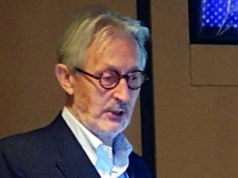
Electric and magnetic fields generated from everyday household appliances, electrical tools and more, used in very close proximity to the body, can interfere with the ability of pacemakers to regulate patients’ heart rhythm, according to new research published in Circulation.
“Electromagnetic interferences with pacemakers in everyday life can occur, however, harmful interferences are rare using vendors’ recommended device settings,” says study author Andreas Napp (RWTH Aachen University Hospital Aachen, Germany).
Researchers tested under different conditions the impacts of electric and magnetic fields exposure on 119 patients with pacemakers. The patients were exposed to an electric and magnetic fields similar to common exposure, ie. electric and magnetic fields at power grid frequencies (50Hz or 60Hz), then increasing the electric magnetic field until the researchers noted a pacemaker sensing failure.
They found pacemakers are susceptible to electric and magnetic fields that can occur in everyday life in particular when programmed to unipolar sensing mode. Examples of electric magnetic field sources are powerlines, household appliances, electrical tools and entertainment electronics.
In many cases, holding the appliance, tool or other electric magnetic field source at a forearm’s length distance (greater than 12 inches) limits the risk of electromagnetic interference. But further measures might be needed in environments with strong electric magnetic fields, such as engines used in the processing or manufacturing industry, Napp says.
“Electromagnetic interference with pacemakers can result in bradycardia” Napp says. “The risk of interference depends on many different factors, such as the settings of the implant or strength of the field source. In occupational environments, such as the manufacturing industry, an individual risk assessment for workers with a pacemaker is required due to the presence of a strong electric and magnetic field.”












